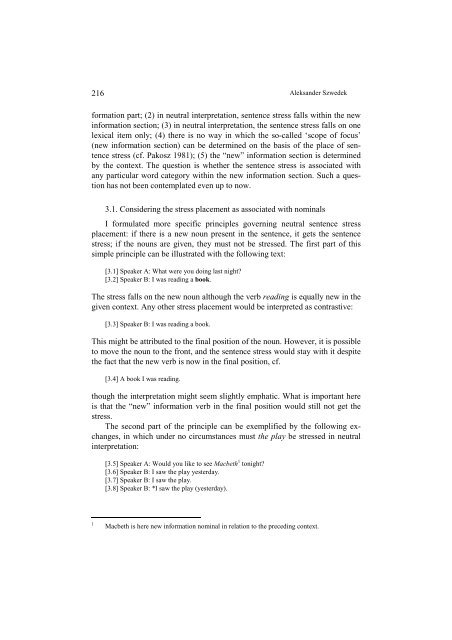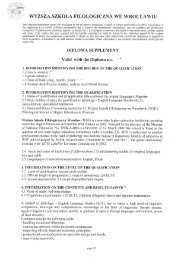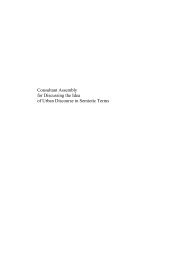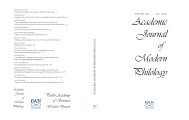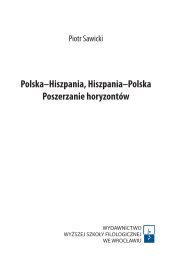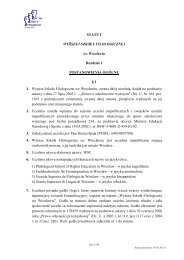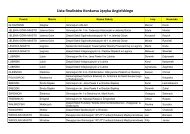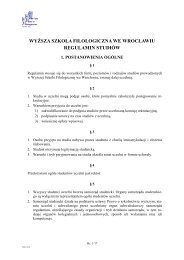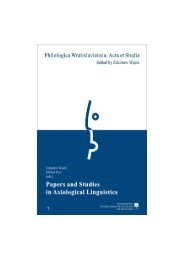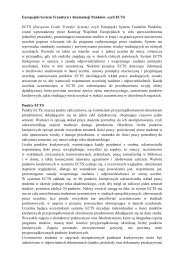s - Wyższa SzkoÅa Filologiczna we WrocÅawiu
s - Wyższa SzkoÅa Filologiczna we WrocÅawiu
s - Wyższa SzkoÅa Filologiczna we WrocÅawiu
You also want an ePaper? Increase the reach of your titles
YUMPU automatically turns print PDFs into web optimized ePapers that Google loves.
216<br />
Aleksander Sz<strong>we</strong>dek<br />
formation part; (2) in neutral interpretation, sentence stress falls within the new<br />
information section; (3) in neutral interpretation, the sentence stress falls on one<br />
lexical item only; (4) there is no way in which the so-called ‘scope of focus’<br />
(new information section) can be determined on the basis of the place of sentence<br />
stress (cf. Pakosz 1981); (5) the “new” information section is determined<br />
by the context. The question is whether the sentence stress is associated with<br />
any particular word category within the new information section. Such a question<br />
has not been contemplated even up to now.<br />
3.1. Considering the stress placement as associated with nominals<br />
I formulated more specific principles governing neutral sentence stress<br />
placement: if there is a new noun present in the sentence, it gets the sentence<br />
stress; if the nouns are given, they must not be stressed. The first part of this<br />
simple principle can be illustrated with the following text:<br />
[3.1] Speaker A: What <strong>we</strong>re you doing last night?<br />
[3.2] Speaker B: I was reading a book.<br />
The stress falls on the new noun although the verb reading is equally new in the<br />
given context. Any other stress placement would be interpreted as contrastive:<br />
[3.3] Speaker B: I was reading a book.<br />
This might be attributed to the final position of the noun. Ho<strong>we</strong>ver, it is possible<br />
to move the noun to the front, and the sentence stress would stay with it despite<br />
the fact that the new verb is now in the final position, cf.<br />
[3.4] A book I was reading.<br />
though the interpretation might seem slightly emphatic. What is important here<br />
is that the “new” information verb in the final position would still not get the<br />
stress.<br />
The second part of the principle can be exemplified by the following exchanges,<br />
in which under no circumstances must the play be stressed in neutral<br />
interpretation:<br />
[3.5] Speaker A: Would you like to see Macbeth 1 tonight?<br />
[3.6] Speaker B: I saw the play yesterday.<br />
[3.7] Speaker B: I saw the play.<br />
[3.8] Speaker B: *I saw the play (yesterday).<br />
1<br />
Macbeth is here new information nominal in relation to the preceding context.


